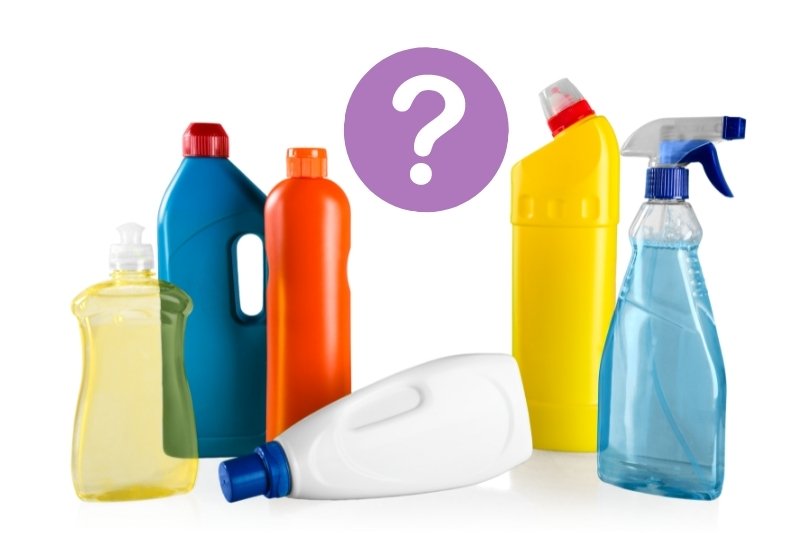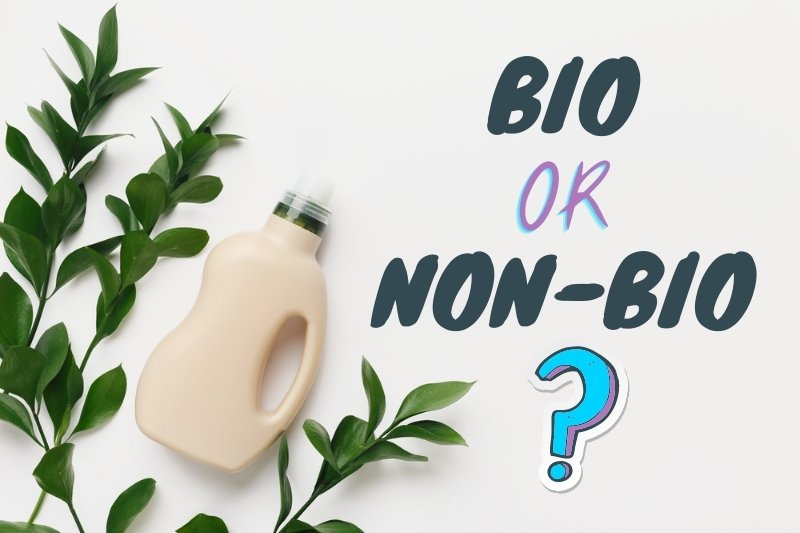When it comes to washing detergents, there is a huge range available to choose from. Detergents fall into two categories: bio and non-bio. There are a wide range of factors that will determine which type of detergent is best for you and your family.
Today, more and more households are looking for new ways to reduce their carbon footprint and their impact on the environment. When it comes to choosing the best laundry detergent for the environment, there are several factors to take into consideration.
What Is the Difference Between Bio and Non-Bio?

The key difference between biological and non-biological detergents is in the ingredients. Biological detergents use enzymes that cuts through food and other natural stains quickly to leave you with fresh, clean clothes.
The enzymes might do a great job of tackling fat, grease, proteins, and other stains, but they can damage delicate fabrics. Some people also find that these enzymes can irritate sensitive skin.
Non-biological detergents, on the other hand, do not contain these enzymes, and will instead use other cleaning chemicals to tackle stains. The lack of enzymes means that non-bio detergents are usually better for sensitive skin.
Environmental Impact
The difference between non-bio and bio detergents when it comes to skin complaints is clear, but the difference when it comes to environmental impact is not so clear.
Ingredients
As a general rule, the enzymes in biological detergents mean that they take longer to degrade than non-biological detergents do. However, it isn’t quite that simple. Some non-bio detergents still contain ingredients that are not biodegradable, along with other chemicals that aren’t really eco-friendly.
If you are looking for a non-bio detergent that only uses eco-friendly ingredients, look for detergents that are phosphate free and 100% biodegradable.
Winner: Non-bio

Septic tanks
One key indicator as to whether or not a laundry detergent is truly gentle would be if it is considered to be septic-tank safe. Detergents that are safe for use with septic tanks will need to degrade quickly so that they do not kill the bacteria the tank relies on.
Detergents that are septic-tank safe are often non-bio as they avoid the enzymes that are present in biological detergent. In addition, they will usually use gentle chemicals, no bleach, and normally contain a lot of natural ingredients.
Winner: Non-bio
Washing temperatures
Traditionally, biological detergents have worked better at low temperatures than non-biological alternatives do. This would have meant that biological detergents would have less of an impact on household energy consumption, however, that isn’t a hard-and-fast rule anymore.
Today, however, many non-biological detergents are available that will still give perfectly clean laundry even at 30°C.
Winner: Bio
Conclusion

There isn’t a simple answer to the question of whether bio or non-bio detergent is best for the environment. The eco-friendliness of a laundry detergent depends on the specific ingredients used and how well it works at low temperatures.
However, the most eco-friendly laundry detergents tend to be non-biological. If you want a laundry detergent that will cause minimal harm to the environment, choose something like Ecover Concentrated Non Bio Laundry Liquid or Bio-D Concentrated Fragrance Free Laundry Liquid, both of which use natural ingredients and are designed to be as eco-friendly as possible.

Lover of coffee, painting, and all things cute and fluffy. I’m always on the lookout for easier, more gentle ways to tackle awful household chores.






